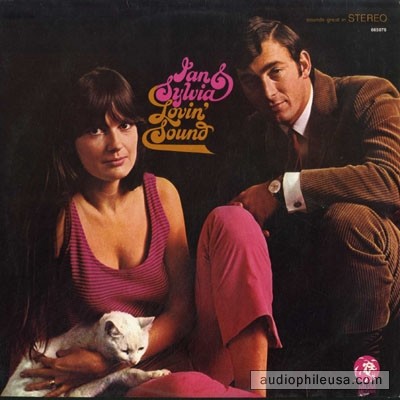I was reading about the folk scene in New York City in the early 1960’s once and came across what I thought was an extraordinary comment. This was time of incredible intellectual and cultural ferment, and Greenwich Village was rich with young talents like Bob Dylan, Simon & Garfunkel, Phil Ochs, Tim Hardin, Peter, Paul, & Mary, Tom Rush, Tom Paxton, the Roches, and so on.
The comment was something like this: many aspiring folk singers envied the talents of any number of song-writers and performers, but if you asked anyone who they would most like to be– if they could be someone else– the answer was usually Ian Tyson or Sylvia Fricker.

Ian & Sylvia were not among the most successful of those performers– though, for a time, they were quite successful– nor among the most prolific or talented. But they were very talented, moderately successful, and, perhaps more than anything else, beautiful. They were beautiful in that magical, transcendent mode that radiates class and intelligence and sophistication. Even this album cover conveyed this: they are not posing. They exist in a sort of conscious state of distinguished self-contemplation, with neither ego nor false humility. They have momentarily paused for the image, not caring if we are impressed or not, because they know what they look like and they know what they are.
One of my brothers owned the album “Lovin’ Sound”, pictured above, which was released in 1967. As an adolescent, the cover picture of Sylvia with the low-cut top– that elegant cleavage– stirred me for obvious reasons. I wasn’t yet a huge fan of their music — now I realize it was probably too authentic and complex for my tastes at the time. When I listen to the song “Lovin’ Sound” today, I am far more impressed with it. Restraint and taste are the last things an adolescent learns to appreciate. But the album cover stayed in my mind for decades. A few years ago, I started searching the internet for it and, surprisingly, had great difficulty locating a copy. Just recently, I finally succeeded.
Listen to “The Lovin’ Sound”. It’s trendy– songs about universal love and peace were hot for a while there in the late 1960’s — but a little richer than something like, say, “Come on people now/smile on your brother/ everybody get together/ start to love one another right now”.
Your world is crying now my friend
But give it Love
And it will mend
And, teach you All
The music to the Lovin Sound
Oh, the Lovin Sound
Well, okay. So maybe it isn’t that much more sophisticated. But it’s a fine song, a bit marred by a somewhat jarring attempt to meld folk and rock styles that reminds me of “The Sound of Silence”.
They had a tv show. They struggled through a few more albums that never seemed to go anywhere.
Then they split. Ian went out west to become a cowboy and sing cowboy songs and run his ranch in Alberta, and Sylvia worked for the CBC. Maybe he cheated on her. Maybe she cheated on him. We don’t know– that’s part of what gave them class: no public drama. Peter Gzowski of the CBC, in narration over some documentary on ’60’s folk groups, says they had “artistic and personal differences”.
But they remain iconic to me, the definition of grace and class, the essence of intelligent, cultured expression, and I can’t think of a single other ensemble that comes close to them in their prime in that regard.
